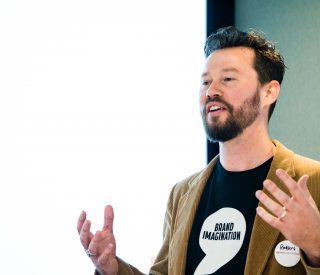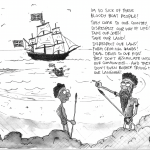Associate Professor Jake Lynch, Director of the Centre for Peace and Conflict Studies at the University of Sydney, and inspirational pioneer for Peace Journalism, has led the charge for the academic boycott of Israel.
In a series of articles, Lynch outlines the importance of such a boycott, and then replies to an influx of response from the initial piece. Not all of which were constructive, as you can imagine. Highly recomended reading:
Why I’m joining the academic boycott of Israel: “I’ve led a call for the University of Sydney to cancel institutional arrangements with the Hebrew University of Jerusalem and Technion University, in Haifa. Though small in scale, these contacts are symbolic of a commitment to help Israel enjoy normal relations with the outside world, despite its record. For this to cease now would be our contribution, however minor, to raising the social, economic and political cost of militarism as an alternative to dialogue and negotiation. And that would bring a long overdue boost to the cause of peace with justice.
I’ve led a call for the University of Sydney to cancel institutional arrangements with the Hebrew University of Jerusalem and Technion University, in Haifa. Though small in scale, these contacts are symbolic of a commitment to help Israel enjoy normal relations with the outside world, despite its record. For this to cease now would be our contribution, however minor, to raising the social, economic and political cost of militarism as an alternative to dialogue and negotiation. And that would bring a long overdue boost to the cause of peace with justice.”
More on Boycott of Israel: “Above all, the academic boycott call is an expression of solidarity with Palestinian academics, Omar Barghouti, Lisa Taraki and colleagues, who are trying to wage a non-violent struggle against oppression. Jonathan Freedland, influential columnist for the London Guardian, noted that President Barack Obama, in his Cairo speech, used words that “resonate in Muslim discourse”, notably his references to “dignity” and “justice”. To take a Lederachian view, for this conflict to be transformed will require reconciliation, and reconciliation is impossible without justice.”
























